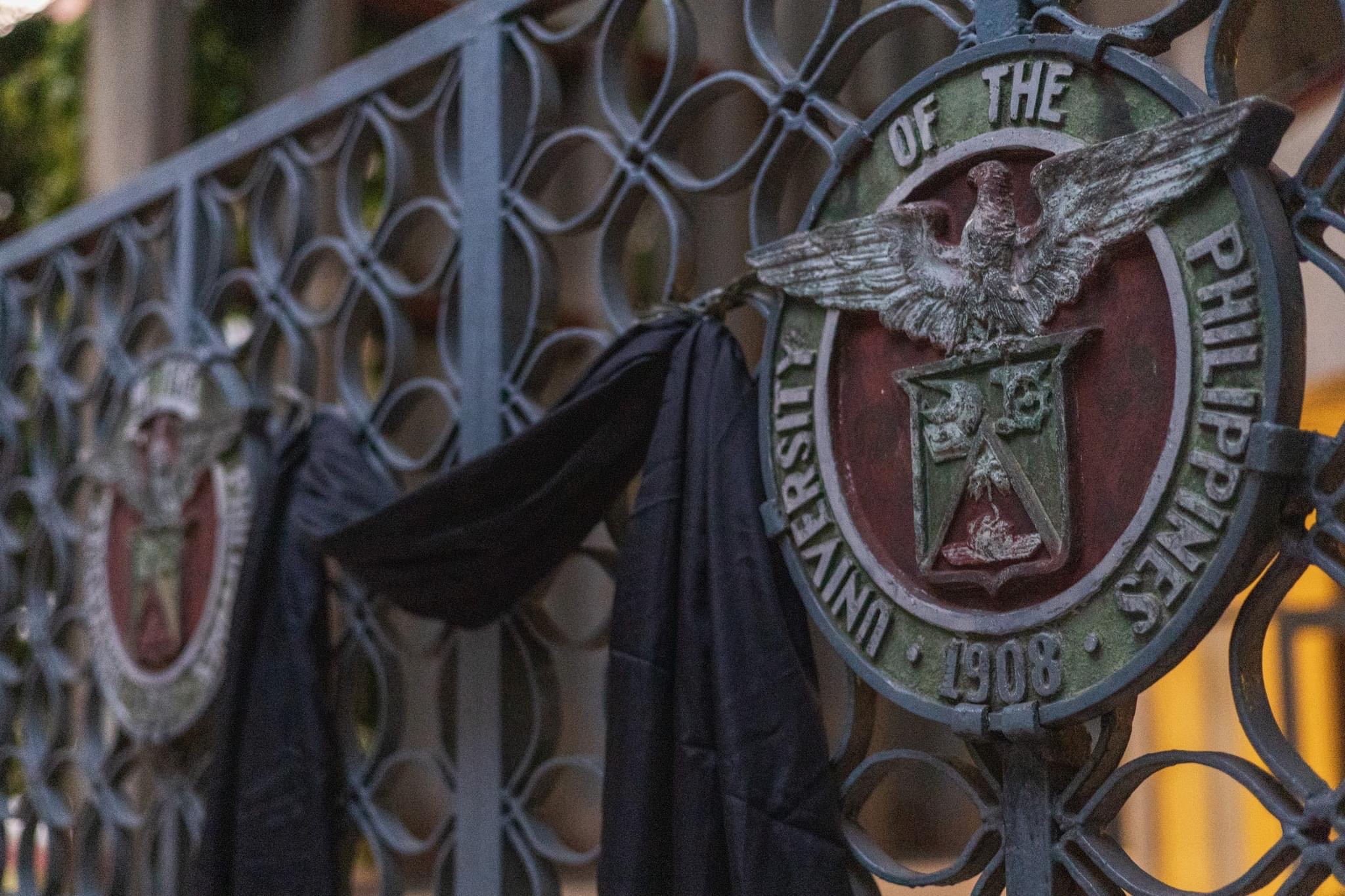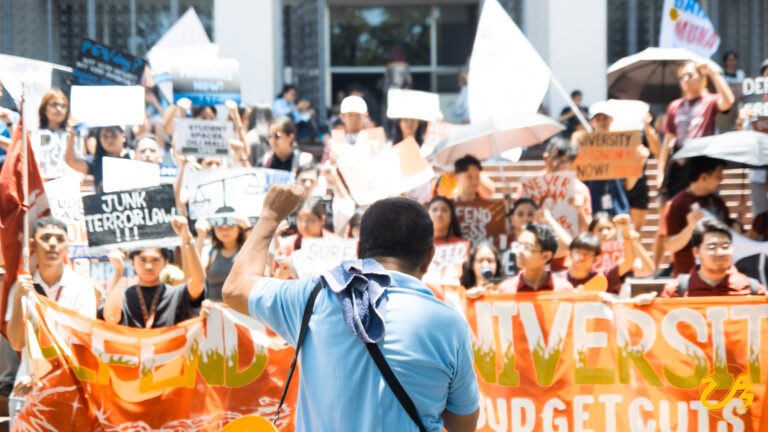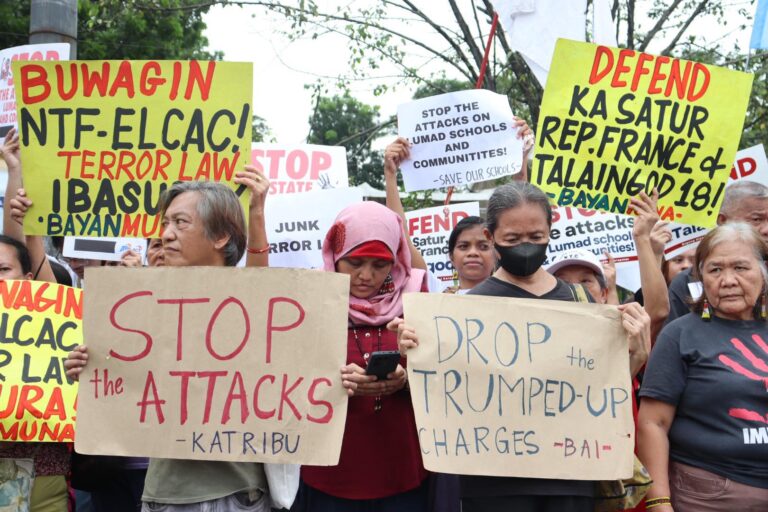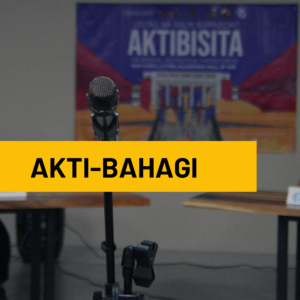
The University Council, UP Diliman’s highest academic body, is set to talk about calls for democratic governance and a more collegial process for selecting academic leaders during a special meeting tomorrow, May 15.�
Made up of the chancellor and all of the university’s faculty with the rank of assistant professor or higher, the council will deliberate issues raised about the most recent selection processes for UP President and UP Diliman Chancellor.
READ MORE: https://sinag.press/news/2023/03/31/komunidad-ng-up-hindi-kuntento-sa-pure-silence-ng-bor-2/
The Movement for Democratic Governance in UP, a multi-sectoral organization pushing for changes to the University’s decision-making processes, said that in both of these selections, the Board of Regents set aside the calls of their constituency and selected candidates that did not have much sectoral support.�
READ MORE: https://sinag.press/news/2023/04/03/sectors-back-nemenzo-demand-democratic-chancy-selection-2/
During the most recent selection process for the UP Diliman Chancellor, for example, the Board of Regents selected College of Law Dean Carlo Vistan instead of incumbent Chancellor Fidel Nemenzo despite the latter receiving endorsements from most of the major organizations among students, faculty and staff.
“The BOR also totally disregarded the findings and recommendations of the very own search committee it had formed, making the whole search process of democratic consultation a farce and a meaningless and token exercise not meant to be taken seriously,”
Insider sources revealed that more than 80% of those interviewed by the search committee said that Nemenzo should continue his stint as chancellor, and that the report as whole recommended the same as well.
“The BOR decision shows a total disregard and contempt. It made light of the collective wishes and aspirations of the UP Diliman community, its faculty members, students, staff, and alumni who went out of their way to appear before the search committee,” said Dr. Eduardo Tadem, Professor Emeritus of the Asian Center.�
The MDG hopes that by bringing the issue up to the University Council, it can register its calls for democratic governance and actually affect how decisions are made in the University.
Nothing new for UP’s “decaying democracy”
The MDG says that the most recent developments are only the latest in a trend of more opaque and less consultative decisions in a university facing a “decay of democratic governance.”.�
In 2019, for example, the sectoral regents at the time – Faculty Regent Ramon Guillermo, Staff Regent Mylah Pedrano, and Student Regent Isaac Punzalan – released a joint position paper condemning a similar lack of collegiality in University decision-making after Joel Tan-Torres was selected as the dean of the College of Business Administration (CBA).
In their paper, they traced the history of the selection processes to show how the BOR’s selection of Tan-Torres was an affront to the University’s principles.
Much like today, the sectoral regents took issue with the BOR’s dismissal of the results of the search committee report.
Members of the search committee at the time even said that Tan-Torres was the “least qualified,” among the nominees, being the only one without a doctorate degree.
Moreover, Tan-Torres was not nominated by the faculty – 36 out of 43 of whom had petitioned to overturn the BOR’s decision when he was chosen – but by CBA Alumni Association President Manny Villar, a fraternity brother in Pan Xenia.
Citing a document written during the term of former UP President Emerlinda Roman on the selection of Deans, the regents said that the selection process the two basic principles outlined in the “Proposed Policies and Guidelines on the Selection of Deans.”
The said document points out that the dean is an academic leader, so academic merit should be put first and the faculty should be the primary stakeholders involved in the selection process. Second, it adds that other sectors that would become the dean’s constituents such as the students and the staff should be consulted as well.
“Neither the part about academic leadership nor the part about consultation is being upheld,” said former Faculty Regent Guillermo.
This prompted a statement from the University Council urging the UP President and the Board of Regents to respect the sanctity of the selection processes.
“By devaluing or disregarding the evaluation of academic peers in the search for their own academic leaders, the UP President and BOR undermine the efforts of a Constituent Unit to lead in setting academic standards, maintain centers of excellence, and innovate in teaching and research, among many other academic functions mandated in the UP Charter,” they said.
The MDG pointed out that in its present state, the University has only gotten less democratic since 2019, which is why the same questions are hanging over the most recent selection process.�
In an open letter to UP President Angelo Jimenez, many members of the MDG raised the same questions about academic leadership and consultation as they asked for an explanation from the BOR on its selection of Chancellor Vistan.
First, they said that Vistan was not the most academically-eligible candidate, much like Tan-Torres.
“The fact that the three most senior academic officials of our University — the Chancellor, the Vice President for Academic Affairs, and your good self — do not hold PhDs will not go unnoticed in the international community, especially in this age of ever-rising academic standards. This is not to say that you cannot be up to doing your jobs; but it will be a challenge to dispel the impression that academic achievements come secondary to other factors in UP,” they said in the letter.
They also said that he was not supported by the sectors, and that the BOR defied the “overwhelming sentiments and choice of the UP Diliman community.”
“While we acknowledge that the BOR was conceived to be a collegial and democratic body and that its composition is meant to represent all sectors and parties with a stake in the University’s purpose and well-being, we maintain that in matters of academic governance particularly the selection of its leadership the community’s preference assumes extraordinary significance and deserves to be respected,” they also said.
They added that these problems are a culmination of other worsening trends as well.
Former Faculty Regent Guillermo explained one example: the growing frequency of Executive Sessions. He said that in the past years, especially during the term of former UP President Danilo Concepcion, the Board of Regents resorted to the use of Executive Sessions – closed-door unrecorded meetings were only the regents themselves are allowed to join – in selecting academic leaders.
This, coupled with several parts of the UP Gazette being redacted, has raised eyebrows among many members of the UP Community.
“Dapat bang parang matter of national security ang selection process?” Guillermo asked.�
He also added how the recent trend of the BOR interviewing candidates like a hiring body in these closed-door sessions is dangerous, creating a patronage relationship that may explain some of the BOR’s questionable decisions.
Democratic governance necessary for “the future of the university”
The MDG said that the first steps toward democratic governance would be for the BOR to release the search committee report and to explain why they defied it in a dialogue with a community.
Former Faculty Regent Guillermo recalled how, when former UP President Francisco Nemenzo defied the community’s endorsements to select Raul Pangalangan as College of Law Dean, he called for a meeting to explain that they choice to prioritize academic leadership.
“At least he faced the music,” Guillermo said about former President Nemenzo, adding that in that Nemenzo earned back the trust of the community because there was a good reason to defy the community’s results.
If the BOR wants to earn back the trust of the community too, the MDG says, it should publicize its reasons for choosing Chancellor Vistan instead of merely asserting that it had the prerogative to do so.
In the long term, however, the movement says that the University must seriously consider reforms to its institutions, saying that with its current composition, it did not reflect the sentiments of the community.
One proposal that has been forwarded for years is the addition of more sectoral regents for communities within the campus or the Research, Extension, and Professional Staff (REPS).
This proposal has gained traction, with Quezon City 4th District Congressmon Marvin Rillo already filing a bill in Congress to call for a REPS regent.
Another proposal is to strengthen the selection process guidelines, moving more of the power down from the BOR and onto the constituency.
But for Guillermo, the university should consider replacing the BOR altogether, explaining that even when we add sectoral regents, many people in the BOR are ignorant about what it really means to lead an academic institution.
“Kahit pa baguhin natin yung bilang ng mga tao diyan, talagang napakahirap lang na sabihin natin na anim na tao lang ang nagdedesisyon,.. Anim na tao lang na madaling ma-maneuver, madaling maluto sa BOR,” said Guillermo, referring to the simple majority necessary for decisions by the 11-member board.�
In the end, the MDG says that University Council meeting is only a start for the movement, as they believe that it is vital to continue pushing for a more democratic UP.
The featured image is courtesy of the College of Engineering






